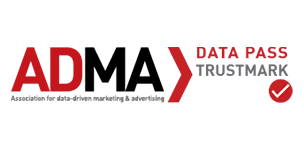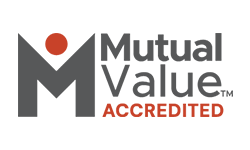G&C Mutual Bank is proud to support Scams Awareness Week (7–11 November 2022).
Scams Awareness Week is an annual campaign hosted by the Australian Competition and Consumer Commission (ACCC) and the Scams Awareness Network, which raises awareness about common scams and offers tips on how people can protect themselves from scammers.
This year, Scams Awareness Week is about empowering people to learn how to spot a scam and encouraging them to take the time to check whether a communication or offer is real.
There are some simple ways to detect a scam. These are some things to look out for:
- A person or a message urging you to act quickly, whether it’s a threat to make an urgent payment, a request for upfront payment or a limited opportunity too good to miss.
- A person or a message asking you to update or provide your personal details, such as identifying information, banking details or passwords, or asking to remotely access your device.
- Any payment request via unsecure or unusual methods such as cryptocurrency, gift cards or bank transfer.
- A person or suspicious message claiming they have new contact details or asking for payment to a new bank account.
- Anyone offering unsolicited financial or investment advice or claiming you can make fast or guaranteed money with little to no risk.
Scams can cause serious harm, so take the time to check whether an offer or contact is genuine before you act on it.
Know the signs - tips to protect you from being scammed:
Stop and check
Be careful of links and attachments. Don’t click on or download anything you don’t trust, especially in unexpected or suspicious texts or emails.
- If unsure, check that a communication is real by contacting the person or organisation directly using details you’ve found yourself.
- Scammers can spoof phone numbers and emails so they appear to be sent from a genuine source. Don’t automatically trust something just because it appears in a previous conversation with a trusted source.
- Make sure your antivirus software is up to date.
Protect your personal information
Never give personal information to a stranger. Scammers will pose as a legitimate contact to get your details to hack your accounts or steal your identity:
- Anyone asking for your passwords or access to your device is likely a scammer.
- For added security enable two-factor authentication on your accounts where possible.
- Use strong passphrases for your online accounts and protect your network and devices with antivirus software.
Be careful with payments
Use secure payment methods such as credit card.
- If a known contact claims they have a “new” bank account, phone number or other details, call the person to confirm using a trusted number you’ve used before.
- When making a large payment to a new recipient, or recipient who claims to have changed their bank account, always call to confirm their bank details using a number found on their website or that you have used before.
Verify before you buy
If you’re buying something on a site or through a seller you haven't used before, do your research first.
- Look for the sellers’ terms and conditions, ABN, and physical address. The company’s address should have a street name, not just a post office box.
- Search a seller or business name and details online for independent reviews.
- Don’t rely on seeing a padlock in the address bar of your browser - this doesn’t guarantee you’re buying from a real company.
Research any opportunity that’s too good to be true
Be wary of anyone that claims you can make easy, fast or guaranteed money.
- Seek professional advice from a registered financial advisor and check they’re registered on the Australian Securities and Investments Commission (ASIC) website.
- Do your reseach before making any decisions and check Moneysmart and Scamwatch for information on investment scams.
Remember
Scammers can pretend to be anyone online, including the government or your bank so you can never be entirely sure who you are dealing with when you’re contacted out of the blue.
Visit the Scams Awareness Week website for more information.
Need help?
If you believe someone has gained access to your personal information, even if the scam appears unrelated to your finances, you should contact your bank immediately. A timely response can be critical in giving you the best chance to stem any loss.
- If you have concerns about your G&C Mutual Bank account contact us on 1300 364 400.
- You can find out how scams work, how to protect yourself, what to do if you’ve been scammed or report a scam to the Australian Competition and Consumer Commission (ACCC) via the Scamwatch website.




